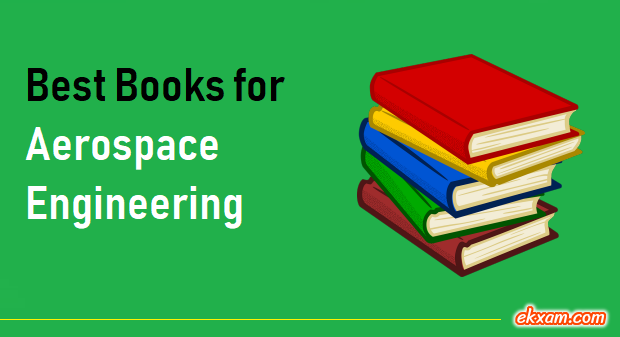Advertisements
Ratings

GATE 2024 PH Preparation – The Graduate Aptitude Test in Engineering (GATE) holds immense significance for aspiring physicists, serving as a gateway to advanced studies and rewarding career opportunities in research and academia.
This comprehensive guide aims to provide aspiring candidates in the field of Physics with a systematic approach to preparing for the GATE examination.
Contents
- 1. Introduction to GATE Physics
- 2. Overview of GATE Physics Syllabus
- 3. Developing a Structured Study Plan
- 4. Selection of Study Materials
- 5. Mastering Core Physics Concepts
- 6. Problem-Solving Practice
- 7. Reviewing Previous Years’ Question Papers
- 8. Taking Mock Tests
- 9. Effective Time Management Strategies
- 10. Implementing Revision Techniques
- 11. Staying Informed with Physics Trends
- 12. Managing Exam Stress
- 13. Final Weeks’ Preparation Strategy
- 14. Approaching Exam Day
- 15. Post-Exam Analysis and Next Steps
- Conclusion: Excelling in GATE Physics
- Additional Resources and References
- GATE Physics Guidance
- GATE Physics Preparation FAQs
- GATE Total Information & Guidance
1. Introduction to GATE Physics
GATE Physics evaluates candidates’ understanding of fundamental concepts, mathematical skills, and advanced topics in various fields of physics.
Excelling in this exam not only demonstrates your mastery of the subject but also paves the way for innovative contributions to the world of physics.
2. Overview of GATE Physics Syllabus
A thorough understanding of the GATE Physics syllabus is crucial for crafting an effective study plan.
Let’s break down the syllabus into subjects and key topics:
Table 1: GATE Physics Syllabus Breakdown
| Subject | Key Topics |
|---|---|
| Mathematical Physics | Linear algebra, calculus, complex variables |
| Classical Mechanics | Newtonian mechanics, Lagrangian and Hamiltonian mechanics |
| Electromagnetic Theory | Electrostatics, Maxwell’s equations, waveguides |
| Quantum Mechanics | Wave-particle duality, Schrödinger equation, angular momentum |
| Thermodynamics and Statistical Physics | Laws of thermodynamics, statistical ensembles, entropy |
3. Developing a Structured Study Plan
A well-structured study plan is the foundation of effective preparation:
- Customized Schedule: Tailor a study plan to your strengths and areas of improvement.
- Subject Allocation: Allocate study time for each subject based on its weightage in the exam.
Table 2: Sample Study Plan
| Week | Subjects/Topics | Time Allocation |
|---|---|---|
| 1-2 | Mathematical Physics | 10 hours/week |
| 3-4 | Classical Mechanics | 12 hours/week |
| 5-6 | Electromagnetic Theory | 10 hours/week |
| 7-8 | Quantum Mechanics | 12 hours/week |
| 9-10 | Thermodynamics and Statistical Physics | 10 hours/week |
4. Selection of Study Materials
Choosing appropriate study materials is vital for effective preparation:
Table 3: Recommended Study Resources
| Subject | Books | Online Resources |
|---|---|---|
| Mathematical Physics | “Mathematical Methods for Physics” by Arfken | NPTEL’s Mathematical Physics Course |
| Classical Mechanics | “Classical Mechanics” by Goldstein | Coursera’s Classical Mechanics Courses |
| Electromagnetic Theory | “Introduction to Electrodynamics” by Griffiths | edX’s Electromagnetic Theory Courses |
| Quantum Mechanics | “Principles of Quantum Mechanics” by Shankar | YouTube’s Quantum Mechanics Lectures |
| Thermodynamics and Statistical Physics | “Introduction to Thermodynamics and Statistical Mechanics” by Schroeder | MIT OpenCourseWare’s Physics Courses |
5. Mastering Core Physics Concepts
Building a strong foundation in core concepts is essential:
- Mathematical Physics: Understand linear algebra, calculus, and complex variable applications.
- Classical Mechanics: Focus on Newtonian mechanics, Lagrangian and Hamiltonian principles.
- Electromagnetic Theory: Grasp electrostatics, Maxwell’s equations, and waveguide theory.
- Quantum Mechanics: Study wave-particle duality, Schrödinger equation, and angular momentum.
- Thermodynamics and Statistical Physics: Comprehend thermodynamic laws, statistical ensembles, and entropy concepts.
6. Problem-Solving Practice
Regular practice of problems enhances problem-solving skills:
- Mathematical Physics: Solve problems on calculus, linear algebra, and complex variables.
- Classical Mechanics: Practice problems involving Newton’s laws, conservation principles, and Lagrangian equations.
- Electromagnetic Theory: Work on problems related to electric and magnetic fields, wave propagation, and transmission lines.
- Quantum Mechanics: Solve problems on wave functions, particle-in-a-box, and quantum operators.
- Thermodynamics and Statistical Physics: Practice problems on thermodynamic processes, statistical distributions, and entropy calculations.
7. Reviewing Previous Years’ Question Papers
Solving past GATE Physics papers offers valuable insights:
Table 4: Benefits of Solving Previous Years’ Papers
| Benefit | Description |
|---|---|
| Identify Question Patterns | Recognize common question formats |
| Enhance Time Management | Practice managing time effectively |
| Understand Exam Difficulty | Gauge the difficulty level of questions |
| Self-Assessment | Evaluate your preparedness and progress |
8. Taking Mock Tests
Simulating exam conditions through mock tests is essential:
Table 5: Benefits of Taking Mock Tests
| Benefit | Description |
|---|---|
| Simulate Exam Environment | Replicate real exam conditions |
| Improve Time Management | Enhance time allocation skills |
| Boost Confidence | Build confidence before the exam |
| Identify Weak Areas | Identify areas needing more focus |
9. Effective Time Management Strategies
Efficient time management during the exam is crucial:
Table 6: Time Management Strategy
| Section | Recommended Time Allocation |
|---|---|
| General Aptitude | 15 minutes |
| Technical Sections | 75 minutes each |
10. Implementing Revision Techniques
Regular revision is vital for retaining knowledge:
- Revision Schedule: Allocate time for revisiting crucial topics.
- Concise Notes: Create summary notes and flashcards for quick review.
11. Staying Informed with Physics Trends
Staying updated with recent developments is essential:
- Follow Scientific Journals: Subscribe to physics journals and publications.
- Participate in Webinars: Attend webinars and seminars to learn about emerging theories and discoveries.
12. Managing Exam Stress
Effective stress management is crucial:
- Relaxation Techniques: Practice meditation, deep breathing, and relaxation exercises.
- Balanced Routine: Incorporate physical exercise, healthy eating, and breaks into your routine.
13. Final Weeks’ Preparation Strategy
In the final weeks, focus on intensive revision of key subjects:
- Focused Revision: Allocate more time to challenging subjects and complex problems.
- Additional Mock Tests: Take extra mock tests to refine your preparation.
14. Approaching Exam Day
Stay composed and approach the exam day with confidence:
- Read Instructions Carefully: Understand question patterns and instructions clearly.
- Effective Time Allocation: Allocate time wisely based on question weightage.
15. Post-Exam Analysis and Next Steps
Evaluate your performance and plan your next steps:
- Performance Analysis: Identify strengths and areas for improvement.
- Future Planning: Decide whether to pursue advanced studies or explore career opportunities in physics.
Conclusion: Excelling in GATE Physics
Preparation for GATE Physics requires dedication, meticulous planning, and a structured approach.
By adhering to the strategies and tips outlined in this guide, aspiring physicists can significantly enhance their chances of excelling in the GATE exam and making impactful contributions to the field of physics.
Additional Resources and References
Explore the recommended textbooks, online courses, physics associations, and practice papers mentioned in this guide for additional resources and references.
These resources will further enrich your understanding and preparation for the GATE Physics exam.
GATE Physics Guidance
- How to Prepare for GATE Physics: A Comprehensive Guide
- GATE 2025 Books: Physics
- GATE PH Syllabus 2025: Physics
- GATE PH Previous Year Solved Papers – (2023-2007)
GATE Physics Preparation FAQs
What is GATE Physics (PH)?
GATE PH is an examination conducted by the Indian Institute of Technology (IIT) for admission into postgraduate programs in Physics and related fields.
It evaluates candidates' knowledge and understanding of physics concepts and serves as a gateway to higher education and research opportunities in this field.
What are the important subjects to focus on for GATE Physics preparation?
Key subjects to focus on include classical mechanics, quantum mechanics, electromagnetism, thermodynamics, statistical mechanics, solid-state physics, and mathematical physics. The GATE PH syllabus covers a wide range of physics topics.
How should I prepare for the GATE PH exam?
Effective preparation involves creating a study plan based on the GATE syllabus. Use standard textbooks, reference materials, and online resources for each subject.
Practice solving previous years' question papers and mock tests to become familiar with the exam pattern and improve your problem-solving skills.
Focus on developing a deep understanding of fundamental physics concepts and mathematical techniques.
Are there any recommended books or resources for GATE Physics preparation?
Yes, some recommended books and resources include:
- 'Classical Mechanics' by Herbert Goldstein
- 'Introduction to Electrodynamics' by David J. Griffiths
- 'Principles of Quantum Mechanics' by R. Shankar
- 'Thermal Physics' by Charles Kittel and Herbert Kroemer
- Online courses, lecture videos, and research articles from reputable institutions and platforms related to physics.
What is the exam pattern for GATE Physics, and how should I approach it?
GATE PH typically consists of multiple-choice questions, multiple-select questions, and numerical answer type questions.
Questions cover various aspects of physics, including theoretical concepts, mathematical problem-solving, and experimental methods.
Start by answering questions you are confident about and manage your time efficiently. For numerical answer type questions, ensure precision in your answers.
A strong foundation in physics principles, mathematical techniques, and problem-solving skills is crucial for success in the exam.
Recent Posts
- AAI Through GATE 2024 – JE (Junior Executive)
- M Tech and MS Programs Through GATE and GRE: Navigating Postgraduate Options
- Job Opportunities After GATE 2024 in India: What You Didn’t Know!
- BSPHCL Through GATE 2024 – 40 AEE
Related Tags
How to prepare for gate physics pdf 2024, how to prepare for gate physics quora 2024, gate physics study material 2024, gate physics syllabus 2024, gate physics study material pdf free download 2024, gate physics book pdf free download 2024 , gate physics question paper 2024, mathematical physics for gate 2024
| GATE (Reasoning & Aptitude & Maths) Books |
| GATE Guide Books |
GATE Total Information & Guidance
Click below given links to get further information.




